
One of the most dynamic parts of the case method is the co-creation of knowledge in the classroom. A case study is designed to create debate amongst the students and to spark thought as students consider the case issues from different angles. For our innovative Doing Business in Africa case series, we wanted to make sure our readers and listeners would have their thoughts provoked in the same way as our MBA students. Every DBIA case therefore concludes with Insights, a one-pager featuring analysis of the case from two different standpoints. Here, experts from academia and industry sensitise our readers to the latest research and industry trends that can help them better understand the business dilemma and learn more about possible solutions. To tease out the views that would usually come out in classroom debate, we make sure each edition of Insights meets some essential criteria.
From academia to industry
DBIA Insights include lessons of both the theoretical and the practical. At the GSB, we are privileged to have faculty who are publishing business and management research across a wide range of disciplines, and with direct applicability to African organisations. Each edition of Insights therefore features the analysis of a GSB faculty member who can bring their latest findings to the table and apply their subject matter expertise to the case. To date, DBIA has featured faculty who specialise in entrepreneurship and strategy, social enterprise and innovation, organisational behaviour and people management, leadership, and financial economics.
But we know from our case research at the Case Writing Centre that expertise comes in all shapes and sizes, and from many different places. Entrepreneurs, business leaders, consultants, employees, and other industry players have much to teach us from what they have learnt in the trenches where they work, day in and day out. On each case, we pull from the vast African business ecosystem to present an industry perspective that can complement, challenge, or enhance the research perspective.
“Bringing you expertise from different angles – a CEO, or a professor, or a GSB alumnus – gives the DBIA cases broader application and makes them ideal for open-source use as we get the value of what’s happening in reality in the African context,” says CWC Manager Claire Barnardo.
Thus far, DBIA cases have benefited from the views of CEOs in similar industries as the case company, consultants with expertise related to the company’s dilemma, and leaders with a strong grasp of the company’s business context.
Finding common ground, from different vantage points
With five DBIA cases under our belt, we have found that our experts add value for readers in a few distinct ways. When we approach experts for their take on the case dilemma, we ask them to weigh in independently, without knowing what issues and ideas their counterpart might be focusing on. But across all our cases, the researchers and industry reps have shown remarkable alignment in the core issues they home in on. For example, in our first case on the Kenyan digital services provider Qhala, both Professor Mikael Samuelsson and CEO of DevBoks Toni Yannick Kalombo identified a critical obstacle that keeps African entrepreneurs from professionalising and taking their startups to the next level: the pressure on self-funded entrepreneurs to balance their goals with the needs of their families. As their observations (made from the study of large data sets and first-hand experience, respectively) showed, in the absence of a mature investor ecosystem and a culture of strong risk appetite, entrepreneurs often end up failing to execute, diluting their visions, and pivoting to less risky (and less rewarding) ventures.
The tendency for our experts to find common ground shows that they are equally attuned to the realities of our DBIA protagonists, that research insights have real-world relevance, and that real-world insights are representative of trends in larger data sets. This is incredibly valuable for readers, learners, and educators who want business insights that are relevant in a local African context.
And yet, although our experts often overlap in some critical areas of their analysis, each will inevitably highlight a unique perspective. Because of their different positions in the ecosystem and the different people they interact with, they tend to spot different types of “gotchas” for the companies and leaders of our DBIA cases. Take our second case on Merchants SA, a business process outsourcing company operating in the South African township of Soweto. CEO of Silulo Luvuyo Rani spoke to the relationships between large corporates and stakeholders in township communities. Drawing on his own experience as a major service provider in townships, he highlighted the importance of creating lasting mechanisms of engagement in order to build trust for long-term cooperation. Meanwhile, Dr Francois Bonnici – Director of Schwab Foundation for Social Entrepreneurship, Head of Social Innovation at the World Economic Forum, and former adjunct professor at the GSB – spoke to the organisational dynamics within large corporates in emerging market contexts that can inhibit (or enable) socially responsible decision-making. Drawing on his team’s extensive ground research and close work with socially responsible businesses, he had a unique view of the common internal challenges that most outsiders would never see. Together, their insights painted a fuller picture of the challenge facing companies like Merchants SA, with an indication of how they can better approach it.
“I love the Insights piece of the DBIA puzzle because it gives perspective on the situation without being a definitive answer,” says Barnardo. “This expands how we think about problems. And that’s perfect case method magic right there!”
When our experts offer complementary insights on the same business dilemma, they demonstrate the connections between separate issues in the case, and that there might be different angles of attack for business decision-makers. Of course, what you see in the Insights feature is a fraction of the analysis that our experts could offer on the case topic, and certainly a small sample of the available perspectives on any given topic. But by narrowing our scope to just a handful of keen insights from two well-placed experts, we hope readers will find their curiosity sufficiently piqued to explore additional related issues or venture deeper into the research on their own – which is what the traditional case method is all about.
Get the analysis
Check out all the expert insights in the current DBIA collection:
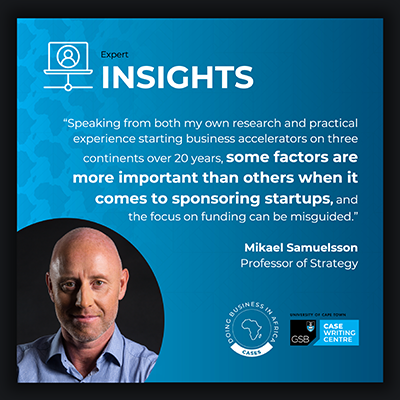
|
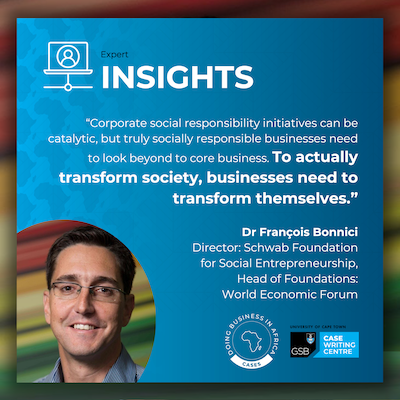
|
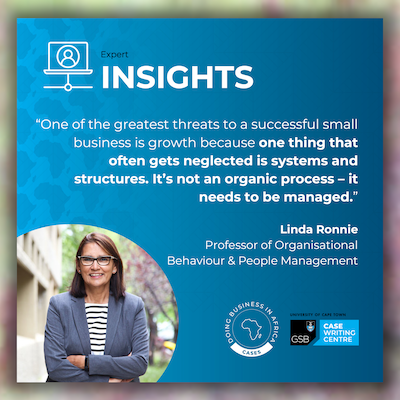
|
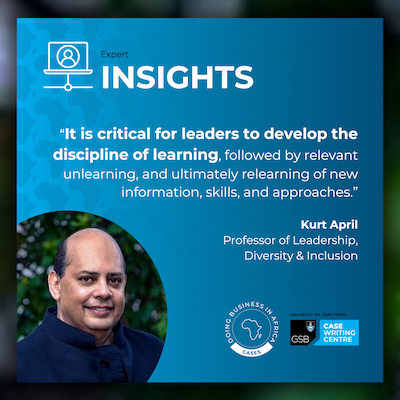
|
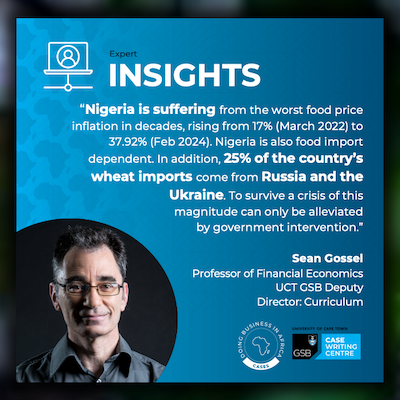
|















